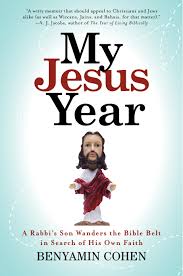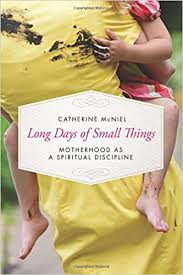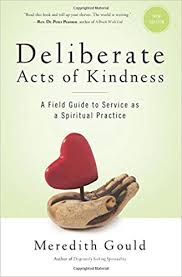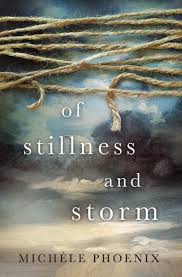It’s complicated.
No, that’s not a Facebook update on my relationship status.* Recently, I wrote a short bit as part of a group post for the Her.meneutics blog about the need to embrace complexity in our understanding of maturing faith. There’s complexity, then there’s the borderlands just beyond complexity. Those lands have names like Chaos, Confusion, and “It’s Complicated”.
Recently, I read two books that captured the complicated nature of being a Jewish person in an Evangelical subculture: My Jesus Year: A Rabbi’s Son Wanders The Bible Belt in Search Of His Own Faith (Harper Collins, 2008) by Benyamin Cohen and Jew In The Pew: A Memoir (Kipling House Books, 2013) by Jenny Berg Chandler. Cohen found himself curious about and perhaps coveting some sort of entre into the churchy Atlanta culture surrounding his modern Orthodox lifestyle. Chandler, who grew up in the first wave of the post-1967 contemporary Messianic Jewish world, eventually migrated into the mainstream Evangelical church for a couple of decades before hitting an emotional and spiritual wall. Both books detail the authors’ respective struggle to make sense of their Jewish identity using the prism of the church to do so.
Cohen spent a year sampling from the Christian buffet, visiting services and outreaches at places like Eddie Long’s mega-church (shortly before this all came to light), a Christian rock festival, a Pentecostal healing service and a wrestling-for-Jesus event. He also attends a couple of mainline services, a Catholic monastery and engages with a Mormon, a nod to the reality that many in this country perceive Mormons as just another branch of the Christian church. But it was the non-denominational expressions of Christian faith that captured his imagination. He explains, “Of all the Christian churches I know, evangelical churches seem to be the most exciting, the most fantastical, and the most entertaining. I wholly admit this is based on nothing more than multiple viewings of the 1992 Steve Martin comedy Leap of Faith, about a crooked preacher who inspires the downtrodden at elaborate Holy Roller tent revival services.” By year’s end, though he found elements of the way in which we practice Christianity compelling (while being rightly repulsed by others), Cohen’s journey through the borderland served to direct him back to a more settled practice of the Orthodox Judaism of his youth.
Chandler grew up in a Jewish family that divided when her mother came to faith in Jesus, the Jewish Messiah. Chandler’s parents divorced during her elementary school years, somewhere along the way, her grandparents embraced their now-divorced daughter’s faith as well. Chandler spent the second half of her childhood in a Messianic intentional community. Like too many who formed congregations in the midst of the tsunami of 1970’s Jesus Freak-era revival, of which the modern Messianic movement is sort of a subset, the group where Chandler’s mom and grandparents landed ended up devolving from joyous revival into spiritual abuse at some point during her teens. The family left the fellowship bearing wounds. Chandler’s faith in Jesus remained intact, and she eventually married a Gentile believer. The young couple set about building their spiritual lives in the non-denominational, then Anglican, branches of the church. After years of this, she found herself restless and feeling disconnected from the Jewishness of her faith, and from her own Jewish identity. Her self-published memoir details her year-long attempt to rekindle Jewish observance in her family and integrate into the mainstream Jewish community while maintaining her identity as a Jewish believer in Jesus.
Chandler and Cohen both capture the strength and the struggle of what it is to be Jewish in America right now. The strength for observant Jews is a powerful connection to a small but formational community, shaped by a shared vocabulary of Sabbath/festal cycle practice. The struggle is that ritual and a focus on ethical behavior don’t necessarily create an intimate relationship with God. Cohen longed for a faith more personal and active than ritual’s habits afforded him. He’d witnessed the commitment and enthusiasm the committed Christian Gentiles surrounding him seemed to have for their faith. He wanted that in some form for himself. Chandler had lots of warm childhood memories of those rituals. Though she had a personal connection with faith in her Jewish Savior, she felt increasingly disconnected from her Jewish identity by years of immersion in the d-i-y liturgy of non-denominationalism and the church year calendar of Anglicanism.
Though I chafe at the formulaic “a year in the life of” memoir structure, in the cases of both Cohen and Chandler’s books, the structure made sense. Jewish life is shaped by these cycles, and the year Cohen took to explore Christianity (with a brief foray into Mormonism, which is not exactly orthodox Christianity) a nod to that. Every season of the year has a different story to tell us about the One who created sun, moon, stars and our revolving planetary home. Both books also featured heapin’ helpins of Jewish humor and guilt. (Where does one end and the other begin? That’s a question for another blog.) Cohen wrestled mightily throughout his Jesus year with the un-kosherness of his Christian explorations, as well as the tugs he sometimes felt toward a faith so unlike his own religio-ethnic idenity. Chandler’s identity confusion came out in angsty anger toward the Christian church’s dispassionate disconnect with its Jewish roots, as well as her uncomfortable realization that she didn’t quite fit in the mainstream Jewish community, either.
 Cohen’s book is the more readable of the two, a mark of his own skill as a writer as well as the fact that it had been through a stringent vetting and editorial process by a big name publisher. His observations about Evangelical subculture are worth the price of the book. There is nothing quite like seeing the familiar through the eyes of an interested outsider. Cohen is sympathetic, fair and kind in his assessments of the various churches he visits. I wish he would have engaged a mature, solid Jewish believer at some point in his Jesus year, because that would have certainly added a whole new set of questions to the ones he already had. I am grateful for the book, and pray that the restlessness that sparked his journey into the borderlands continues to prod him forward. I don’t think his faith story is settled yet – not when the entire year was itself a prayer.
Cohen’s book is the more readable of the two, a mark of his own skill as a writer as well as the fact that it had been through a stringent vetting and editorial process by a big name publisher. His observations about Evangelical subculture are worth the price of the book. There is nothing quite like seeing the familiar through the eyes of an interested outsider. Cohen is sympathetic, fair and kind in his assessments of the various churches he visits. I wish he would have engaged a mature, solid Jewish believer at some point in his Jesus year, because that would have certainly added a whole new set of questions to the ones he already had. I am grateful for the book, and pray that the restlessness that sparked his journey into the borderlands continues to prod him forward. I don’t think his faith story is settled yet – not when the entire year was itself a prayer.
 Chandler’s self-published book has value in its important message that the church isn’t always an easy place for Jews who believe in Jesus to be. There are a number of places in the book she either tries too hard to strut her Jewish cred, talks too much about the stuff of her daily life (dog, cooking, driving kids to and fro), or repeats her rants about not fitting in anywhere. Her message about what it means to be a Jew in the pew is an important one, and is why I am talking about it here while praying she elects to put the manuscript through a merciless editorial process with a paid professional. My critique is offered in love, because the message of her book is of great value to sparking conversation about the subject. In many ways her story – and her frustrations – mirrors some of my own experience in the church.
Chandler’s self-published book has value in its important message that the church isn’t always an easy place for Jews who believe in Jesus to be. There are a number of places in the book she either tries too hard to strut her Jewish cred, talks too much about the stuff of her daily life (dog, cooking, driving kids to and fro), or repeats her rants about not fitting in anywhere. Her message about what it means to be a Jew in the pew is an important one, and is why I am talking about it here while praying she elects to put the manuscript through a merciless editorial process with a paid professional. My critique is offered in love, because the message of her book is of great value to sparking conversation about the subject. In many ways her story – and her frustrations – mirrors some of my own experience in the church.
Because we who are Jewish believers are often told by well-meaning Christians with weak theology that our Jewishness doesn’t matter now that we are following Jesus (click here and read a couple of the most recent comments on my recent piece about the Jewish roots of Christian sabbath to get a sense of what we’re up against), I commend both of these books to you if you care about the Jews in your pews – or those standing on the sidelines, full of questions, watching.
*In case you’re wondering, this October, Bill and I will be celebrating our 35th anniversary.











